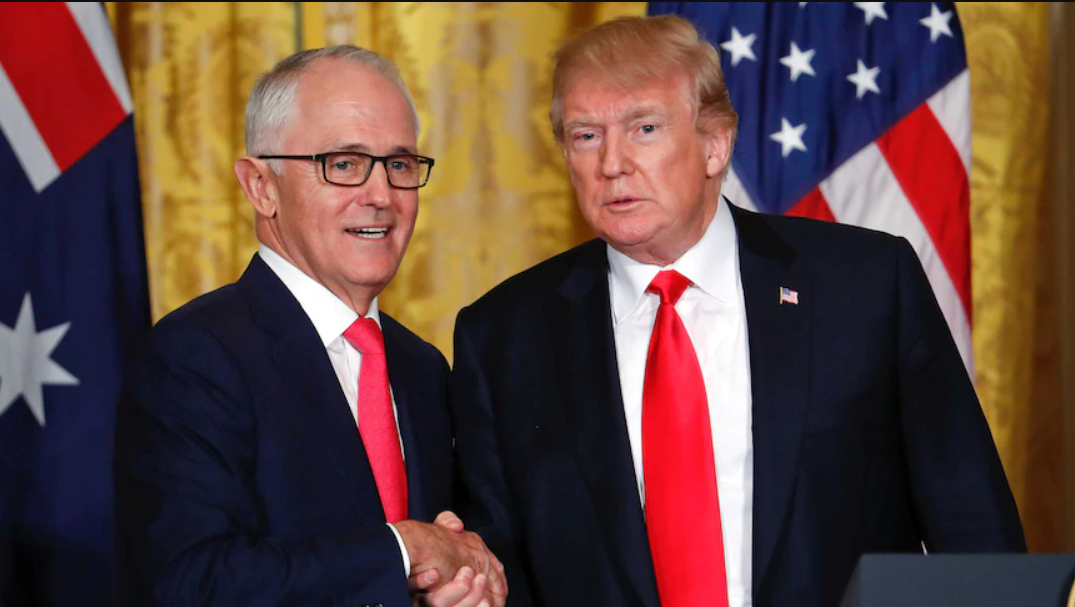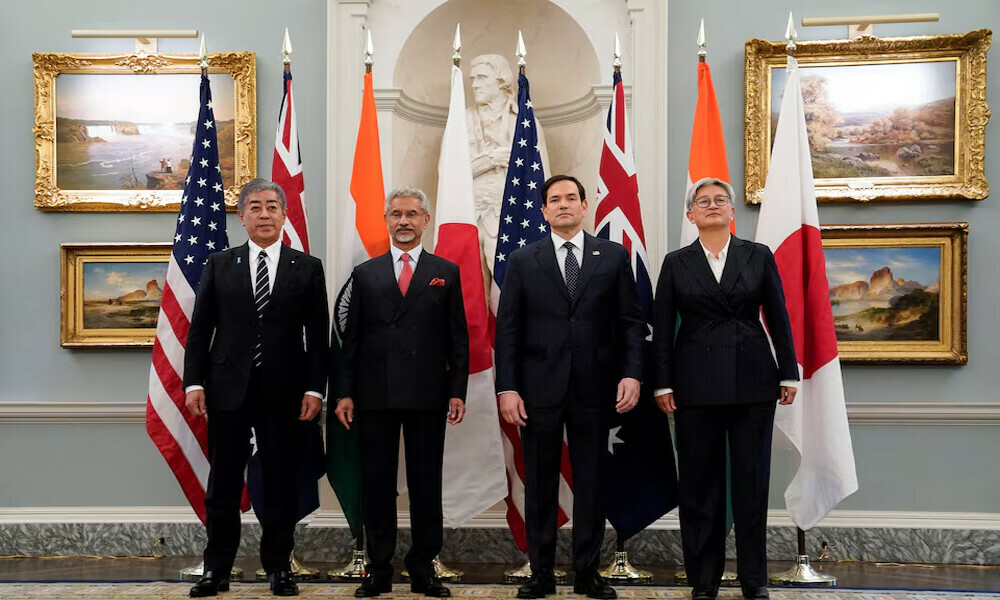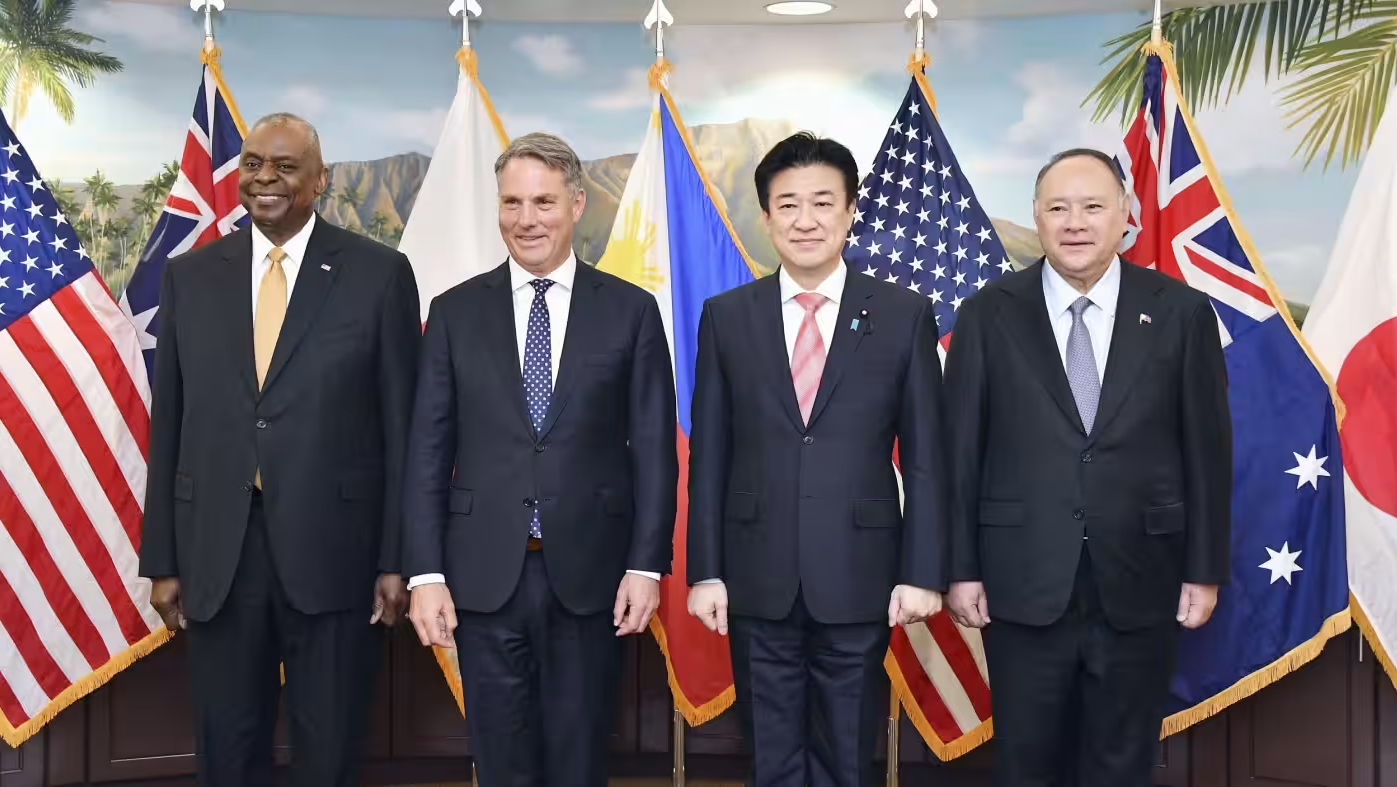
Du Lan, Deputy Director at Asia-Pacific Institute, China Institute of International Studies
Apr 10, 2025
The Indo-Pacific Strategy of Trump 2.0 remains unclear, although consensus has been reached on major power competition. If a new Indo-Pacific Strategy now emerges to build U.S. advantages against China, it will be designed to serve core MAGA goals.

Sajjad Ashraf, Former Adjunct Professor, National University of Singapore
Feb 27, 2025
The Quad has evolved into a coalition with increasing military cooperation and shared concerns over China’s rising power, though India’s reluctance to fully engage in a military alliance limits the group's effectiveness in countering China's influence in the Asia-Pacific.

Zhao Minghao, Professor, Institute of International Studies at Fudan University, and China Forum Expert
Dec 20, 2024
Increased cooperation among Quad countries and partners in the Indo-Pacific region poses a challenge for Chinese diplomacy. The new U.S. president will not only inherit the security framework built under Joe Biden, but is likely to harden it even further. Thus, China has reason to worry that tensions will rise and that new hot spots will be created.
Li Yan, Director of President's Office, China Institutes of Contemporary International Relations
Oct 08, 2024
The institutionalized quadrilateral dialogue is now a leading alliance network of the U.S., alongside its bilateral alliances in the Asia Pacific. But there are differences within the Quad that are larger with regard to global hot spots such as the Ukraine crisis and the Palestinian-Israeli conflict.
Richard Javad Heydarian, Professorial Chairholder in Geopolitics, Polytechnic University of the Philippines
Sep 30, 2024
President Joe Biden recently hosted Quad leaders to celebrate their cooperation while raising concerns about rising tensions with China. Despite initiatives aimed at countering China's influence, India's growing assertiveness may lead it to distance itself from the Quad, creating uncertainties about the alliance's future amid shifting geopolitical dynamics.

Richard Javad Heydarian, Professorial Chairholder in Geopolitics, Polytechnic University of the Philippines
May 24, 2024
Amid a shifting foreign policy in the Philippines under President Ferdinand Marcos Jr., maritime tensions in the South China Sea have escalated, prompting the Philippines to join the newly-formed Quadrilateral security grouping, dubbed the 'Squad,' to intensify security cooperation. While Marcos Jr. emphasizes diplomatic solutions, tensions persist due to opposing interpretations of past agreements with China, potentially complicating regional dynamics.
Warwick Powell, Adjunct Professor at Queensland University of Technology, Senior Fellow at Beijing Taihe Institute
Apr 25, 2024
The United States has intensified its efforts to assert or reclaim American Primacy in Asia. Assert if one holds the view that it still holds military preponderance; reclaim if one believes that it doesn’t. Through a series of so-called mini-lateral arrangements, the US has in recent years sought to enlist its Asia Pacific client states, former colonies and subimperial allies to anchor a 21st Century bulwark on the western edge of America’s Lake. The Quad, AUKUS and now the trilateral involving Japan and the Philippines form part of a lattice-like network, in all practical intents and purposes, aimed squarely at the containment of China.

Zhao Minghao, Professor, Institute of International Studies at Fudan University, and China Forum Expert
Feb 29, 2024
The United States seeks to widen the technology gap with China as much as possible and thus will create more barriers for Chinese research and development. It may even try to push back some of the technological advancements China has made. China needs to prepare for greater pressure.

Li Yan, Director of President's Office, China Institutes of Contemporary International Relations
Sep 05, 2023
The deepening trilateral collaboration of the United States, Japan and the Republic of Korea is undermining stability on the Korean Peninsula, and recent provocative actions, will only serve to escalate tensions further. In addition, harsh rhetoric erodes the fragile trust of nations and could result in a generalized sense of insecurity.
Brian Wong, Assistant Professor in Philosophy and Fellow at Centre on Contemporary China and the World, HKU and Rhodes Scholar
May 16, 2023
China and India are Asia’s two largest countries, and both are rising quickly to claim powerful positions in the international order. Their proximity has made them natural competitors - but their relationship’s pillars and challenges will be important to understand in the 21st Century.